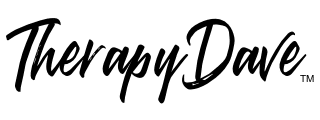Our priorities tend to shift during an unexpected crisis, whether we want to our not. And yet the problems of our life can’t remain on hold forever. How do we handle this added anxiety and navigate the issues we continue to face?
My philosophy for navigating any crisis is to be an optimistic realist: Mentally prepare for the best, yet strategically plan for the worst. All the while, keeping our eyes and ears open for any important themes that we can’t help but notice if we allow for genuine curiosity.
So, how do you do this? First, you must be optimistic in order to survive. It’s not stress that causes our problem; it’s how we react to stress that ultimately does us in.
Those that are so negatively affected by stress are referred to as Velcro people: When something bad happens to them, they get really upset and, by the end of the day, they are still in emotional turmoil. The catch is, stress sticks to these people like Velcro. Over-reaction is common. And it can have real long-term health consequences as well.
With Teflon people, when something bad happens to them, it slides right off. They aren’t necessarily unrealistic and talking about unicorns and rainbows, though: They make a plan for action and take comfort in the knowledge that eliminating uncertainty from the equation is a dangerous recipe for sustaining anxiety, not eliminating it.
Second, you must avoid talking yourself out of taking action to change your situation. One popular study shows that when other people remain seated in a room filling with smoke, only 10% will actually get up and leave the building! We are so effective at letting other people or circumstances talking us out of making any effective change in our lives. Complacence and tolerance becomes our plan of action by default, which is unfortunate.
Finally, you must be realistic and actually take action – any action. We can’t eliminate all the potential steps of uncertainty from the equation. Yet, in the end, no one is coming to save us from our troubles. It is up to us to take action and make the changes we want in order to take charge of the direction of our lives. In essence, any step forward is better than not taking any action at all.
Elicit all the help you need, of course: Friends, family members, therapist, and other trusted advisors. But in the end, things will only change in as much as we put our plan into action. Pick a direction, stick to it, and avoid making things worse by trying to solve everything.
